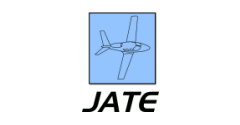Abstract
The Federal Aviation Administration places aviation safety as a top priority, continuously striving to improve safety standards within the National Airspace System. In 2004, the Federal Aviation Administration introduced the Advanced Qualification Program (AQP) as an alternative methodology for pilot training and evaluation. This study explores the impact of AQP-centered aviation education on student performance, particularly in the context of learning advanced jet transport systems. The AQP model, based on aligning training with operational aviation requirements, emphasizes cognitive skill training and evaluation. Theoretical foundations underpinning this study include Karp’s integrated aviation learning model, which seamlessly integrates various instructional approaches, fostering comprehensive knowledge and proficiency. The research employs one-way analysis of variance (ANOVA) to compare student performance in AQP-centered, traditional classroom, and blended aviation education. Results reveal that AQP-centered education consistently produces the highest student performance. The study’s findings emphasize the potential benefits of integrating the AQP into aviation higher education programs. Future research should expand these investigations to encompass diverse aviation degree programs and student perceptions, fostering the continuous enhancement of aviation education and safety standards.
Recommended Citation
Albelo, Jorge L. D.; Fraticelli Rivera, Victor; and Thomas, Robert L.
(2024)
"Integration of Advanced Qualification Program into Aviation Education,"
Journal of Aviation Technology and Engineering:
Vol. 13:
Iss.
1, Article 1.
Available at: https://doi.org/10.7771/2159-6670.1308


